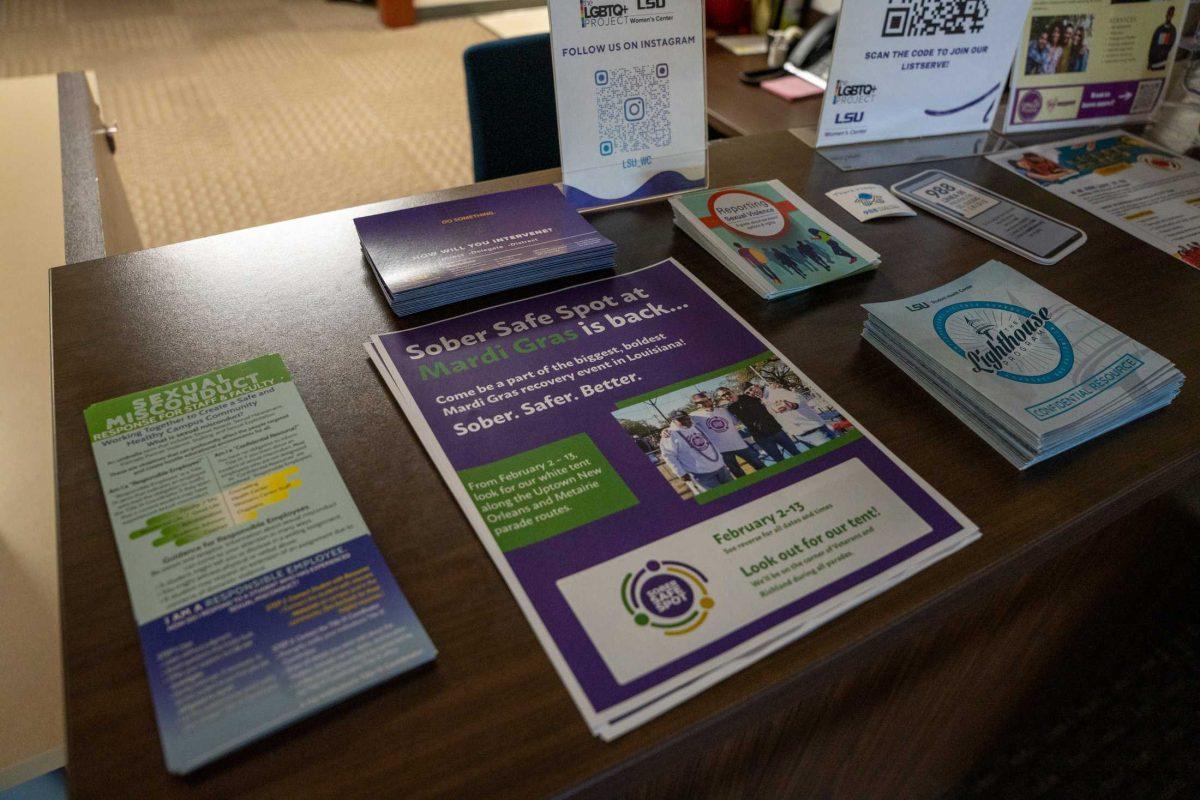The English Graduate Student Association on Feb. 1 kicked off its 34th Annual Mardi Gras Conference, a three-day event for graduate and undergraduate students to show off their research in front of peers, scholars and spectators.
Held at the LSU Women’s Center, anything displayed during the conference had to fall under this year’s theme: “Legacies of Power and Power of Legacies.” Presenters were sectioned off into panels with similar research to allow each presenter to receive more productive feedback and the ability to network with people in their field.
READ MORE: LSU promised paid family leave to all employees. Not everyone’s getting it.
“The questions that I’ve been asked allowed me to think a little bit more concretely about where I’m going with my research next,” said English doctoral candidate Amber Jurgensen.
This year the panel followed a professional format, and was composed of three or four presenters, a moderator and spectators. Each person presented for around 15 to 20 minutes before moving on to the next and concluded with questions from the spectators.
“The EGSA is mostly interested in helping graduate students professionalize and that’s a big function of what the conference does for us,” said English graduate Byron Miller.
For LSU students, the Mardi Gras Conference is a great way to practice presenting on their home turf. The conference also enables students who cannot afford to travel the ability to collect input on their projects.
“It’s really exciting, because this is one of the few opportunities I get to learn more detail about what my colleagues are doing and get to see work from folks who are in other universities across the world,” Jurgensen said. “I appreciate what the Mardi Gras conference is able to do for LSU’s graduate students and for its undergraduates who also come to learn about what research looks like at the academic level.”
Undergraduate students are allowed to present their own research; however, the conference is geared more toward graduate students who are working on larger dissertations. Scholars already in their respective fields are also allowed at the convention. Their unique ability to give constructive criticism from an expert’s perspective makes their participation extremely valuable.
Jurgensen is an officer in the EGSA and during the “Poison, Gender, and Sexuality” segment of the conference discussed her topic of “Poison, Affect, and the Queered Female Body.”
Another graduate student, Elizabeth Robertson, talked about her latest research paper during the conference.
“I was looking at how you see influences of patriarchal values and violence and the queer depictions of sexuality and sexual acts,” Robertson said.
She used the book “Ryder” by Djuna Barnes to give examples on her topic.
The conference concluded the afternoon of Feb. 3, its flexible schedule allowing a wide variety of presentations on a multitude of topics. EGSA hopes to hold the 35th conference around the same time next year.




